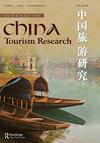社会规范和个人规范对绿色酒店消费意愿的影响:计划行为理论的延伸
IF 2
Q3 HOSPITALITY, LEISURE, SPORT & TOURISM
引用次数: 5
摘要
尽管以往的研究大多采用计划行为理论(TPB)来研究消费者态度与行为差距之间的关系。然而,光顾绿色酒店仍然被认为是行为转变议程中最持久的挑战之一。本文旨在通过研究个人规范(PN)在解释消费者光顾绿色酒店意愿中的作用,为绿色酒店的发展做出贡献。本研究还发现,消费者的社会规范会影响他们对意向的态度、感知行为控制(PBC)和PN,态度会影响他们对意向的行为控制。共收集有效问卷399份,运用SPSS和AMOS对生成的假设进行实证检验。结果表明,SN对PN、态度、PBC和意向分别有正向影响。PN、态度和PBC正向影响意向。此外,PN对SN与意向的关系有中介作用,态度对SN与意向的关系有中介作用,PBC对态度与意向的关系有中介作用。本研究扩展了TPB,将PN作为前项,以便更好地了解消费者光顾绿色酒店的意愿。在此基础上,讨论了本文的理论贡献、实践意义和局限性。社会规范和个人规范对消费者光顾绿色酒店意愿的影响:计划行为理论的延伸本文章由计算机程序翻译,如有差异,请以英文原文为准。
The Effect of Social and Personal Norm on Intention to Patronize Green Hotels: Extension of Theory of Planned Behavior
ABSTRACT Despite most previous studies investigated the relationship between consumers’ attitude and behavior gap by adopting the theory of planned behavior (TPB). However, patronizing green hotels is still considered to be one of the most persistent challenges in behavioral transformation agenda. This paper aims to contribute to the TPB by investigating the role of personal norm (PN) in explaining consumers’ intention to patronize green hotels. This study also argues that consumers’ social norms (SN) can influence their attitudes, perceived behavioral control (PBC) and PN toward intention, and attitude can influence their PBC. A total of 399 valid questionnaires were collected to empirically test the generated hypotheses using SPSS and AMOS. The findings indicated that SN positively influenced PN, attitude, PBC and intention, respectively. PN, attitude, and PBC were shown to positively influence intention. Furthermore, PN shown a mediating effect on the relationship between SN and intention, attitude displayed a mediating effect on the relationship between SN and intention, and PBC mediated the relationship between attitude and intention. This study expanded the TPB which incorporated PN as an antecedent to provide a better understanding on consumers’ intention to patronize green hotels. The theoretical contributions, practical implications and limitation are discussed accordingly. 社会规范和个人规范对消费者光顾绿色酒店意愿的影响:计划行为理论的延伸
求助全文
通过发布文献求助,成功后即可免费获取论文全文。
去求助
来源期刊

Journal of China Tourism Research
HOSPITALITY, LEISURE, SPORT & TOURISM-
CiteScore
4.00
自引率
10.50%
发文量
40
期刊介绍:
Journal of China Tourism Research (JCTR) is the official journal of the International Association of China Tourism Studies (IACTS) and is now indexed in the Emerging Sources Citation Index (ESCI)! JCTR is a truly international journal that publishes the latest research on tourism (all articles printed in English with Chinese abstracts) that relates to China and the Chinese. It provides a rich forum for exchange of fresh information and ideas among academics and practitioners; fosters and enhances cutting-edge research activities that advance the knowledge of tourism; and discusses the relevance of tourism to Chinese society. The journal encourages interdisciplinary scholarship and commentaries, aims at the highest intellectual level, and only publishes manuscripts that make significant contributions to the subject areas.
 求助内容:
求助内容: 应助结果提醒方式:
应助结果提醒方式:


